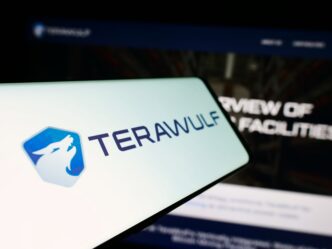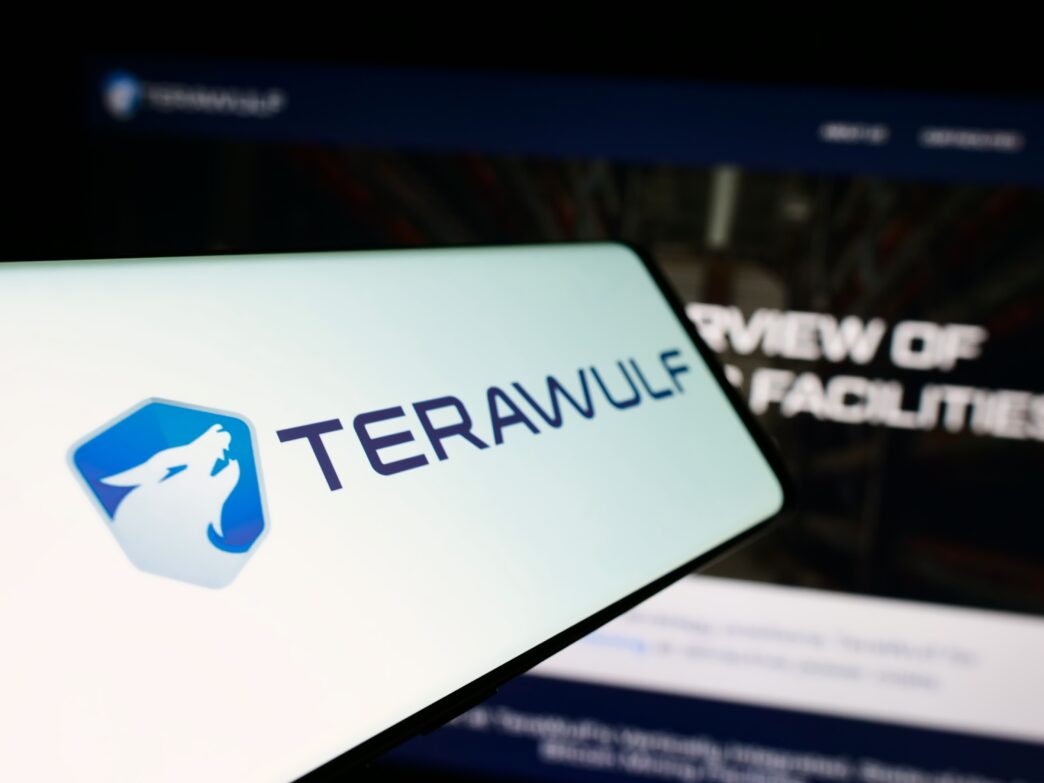Executive Summary
The Story So Far
Why This Matters
Who Thinks What?
TeraWulf, a Bitcoin miner and datacenter operator, reported a significant 87% year-over-year revenue increase to $50.6 million in its third-quarter earnings, a gain attributed to rising Bitcoin prices and expanded mining operations. Despite the revenue growth aligning with preliminary estimates, the company’s stock experienced a slight dip in after-hours trading Monday, even as its CEO emphasized a growing strategic partnership with Fluidstack and Google.
Q3 Financial Performance and Stock Movement
The Easton, Maryland-based company’s revenue of $50.6 million for the quarter matched its preliminary guidance issued in late October, which projected figures between $48 million and $52 million. This substantial increase from $27 million in the third quarter of the previous year was primarily driven by Bitcoin’s appreciating value, an expansion of mining capacity, and the commencement of high-performance computing (HPC) lease revenue.
On Monday, TeraWulf’s shares, traded on the Nasdaq under the ticker WULF, closed up 3.8% at $14.30. However, the stock saw a 2.5% decrease in after-hours trading. Over the past month, the company’s share price has climbed 7.6%.
Strategic Shift Towards AI Compute
Paul Prager, TeraWulf’s Chief Executive Officer, highlighted the company’s active third and fourth quarters, emphasizing the strengthening partnership with Fluidstack and Google. “These transactions demonstrate the strength of our platform and the trust that world-class technology partners place in our ability to execute,” Prager stated, adding that the company is focused on execution while planning for growth in 2027 and beyond.
TeraWulf, which went public in December 2021 primarily as a Bitcoin mining entity, has since strategically pivoted to build “high-performance AI compute infrastructure.” This evolution was underscored by a 10-year AI hosting deal struck with Fluidstack in August, valued at $3.7 billion in contract revenues, with potential to exceed $8.7 billion through lease extensions.
As part of this agreement, Google committed to backstop $1.8 billion of Fluidstack’s lease obligations. In exchange, the technology giant received 41 million shares of TeraWulf common stock, representing approximately an 8% pro forma equity ownership stake in the company. Prager described this move as “converting advantaged infrastructure positions into contracted megawatts with investment-grade counterparties and doing so at strategic scale.”
Ownership Structure
With its 8% equity stake, Google is now TeraWulf’s second-largest corporate shareholder, trailing only Prager himself, who holds 10.7% of the shares. Other notable institutional investors include Stammtisch Investments, Bayshore Capital, and Revolve Capital. Large asset managers like Vanguard Group and BlackRock also hold positions, primarily through passive index funds.
Outlook
TeraWulf’s third-quarter results showcase strong revenue growth fueled by a buoyant Bitcoin market and an expanding operational footprint. The company’s strategic pivot towards high-performance AI compute infrastructure, solidified by its significant partnerships with Fluidstack and Google, positions it at the intersection of cryptocurrency mining and the rapidly growing AI sector, indicating a diversified growth strategy for the future.







